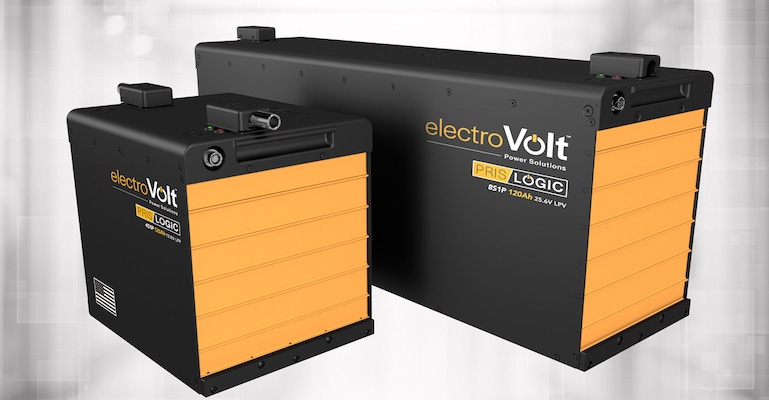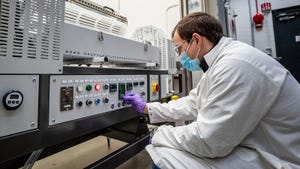Need a Safe, Reliable, and Adaptable Power Source? Try These Prismatic Battery Modules
Idaho-based electroVolt has developed a modular lithium-iron-phosphate prismatic battery that can be configured for use in a variety of electrification applications.
October 15, 2021

Electric vehicles (EVS) are grabbing all the headlines, but behind the scenes, there is a quiet revolution occurring in the world of battery power. The same or similar lithium-ion battery technology that is used to power an EV can be used for a variety of other applications. Because the cost of EV batteries has dropped more than 80 percent over the last decade, the cost of applying the new higher-performance technology to applications that used traditional battery systems is now affordable.
Modular, Prismatic
A good example of this trend is a modular system that has been developed by Idaho-based electroVolt. Using prismatic lithium-iron-phosphate (LiFePO4) batteries that are equipped with a proprietary thermal shield, passive cooling, and a custom-tailored Battery Management System (BMS), the company’s PRISLogic batteries are specifically designed for applications that are presently using traditional lead-acid batteries.
LiFePO4 cells are generally known for their safety and reliability as they are less prone to experience thermal runaway. They have a lower energy density than lithium-ion batteries with nickel-based cathodes but are still finding applications in lower performance, shorter-range EVs. The energy density of a LiFePO cell is still much higher than a lead-acid battery and they have a very long cycle life capability. The engineers at electroVolt have developed a heat shield that both improves thermal management and provides the optimum distributed pressure on the electrode surface to enhance performance.
Applications
The batteries from electroVolt are designed to support a variety of specialized applications, including telecommunications, data center backup, material handling, robotics, and unmanned systems. The 12.8-volt PRISLogic modules are scalable up to 800v and the BMS in each module is engineered in a way that allows it to be optimized to meet the buyer's requirements. The BMS provides an accurate state of charge and discharge as well as data aggregation and comprehensive system communication and will enable the connection of multiple modules in series or parallel to meet system needs without losing critical system monitoring and control.
"Our PRISLogic design allows for the customization of the control parameters and communications without the need for additional application-specific hardware or software, lowering the development cost and time to market of energy storage projects," said Keith Wallace, electroVolt's CEO in a company news release. "The extensive capability for customization and safety gives users the flexibility to quickly integrate PRISLogic batteries into their applications without developing the usual ancillary control systems to assure adherence with various compliance requirements.”
Modules
The company has developed nine customizable models to tailor every module and system configuration to meet specific needs and requirements, including charging, discharging, cycle life optimization, data aggregation, and system communication. The PRISLogic modules offer a wide operating temperature range (-4ºF to 113ºF), 4,000 cycle life, and easy maintenance.
As the world moves more deeply into electrification, the need for adaptable, reliable, safe, and low-cost battery solutions will continue to grow. By focusing on LiFePO chemistries that avoid the raw materials issues of cobalt-containing, nickel-based lithium-ion batteries, companies like electroVolt are able to meet the needs traditionally met with lead-acid batteries and to move into new applications that lithium-ion chemistries make possible.
Kevin Clemens is a Senior Editor with Battery Technology.
About the Author(s)
You May Also Like





